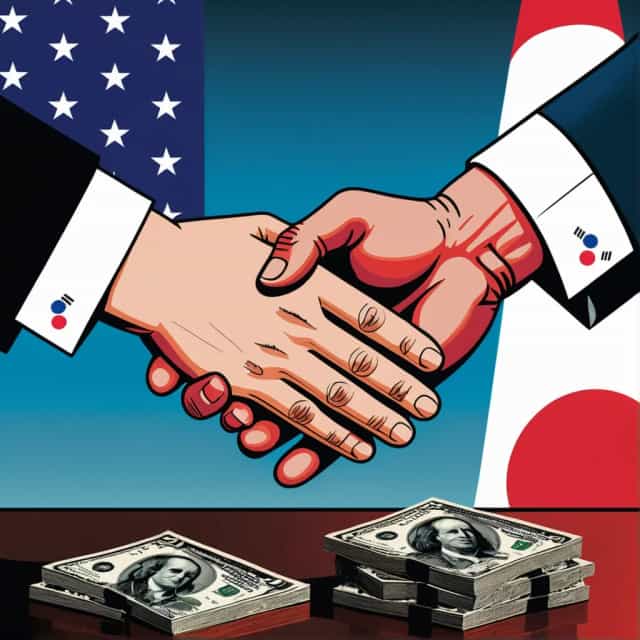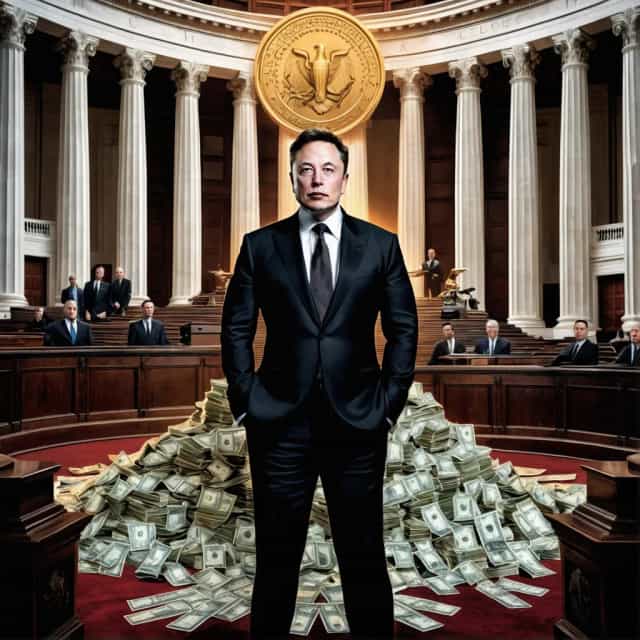
출처: Block Media
Upbit CEO Excluded from South Korea's National Assembly Audit Witness List: Implications for the Crypto Industry
South Korea's National Assembly audit on the financial sector is proceeding without direct representation from the digital asset industry, raising concerns among stakeholders. The exclusion of Oh Gyeong-seok, CEO of Dunamu — the parent company of South Korea's largest cryptocurrency exchange, Upbit — underscores growing apprehension about the sector's diminishing voice in discussions on regulatory and operational issues.
Decision to Exclude Oh Gyeong-seok: A Procedural Shift
On October 15, political insiders confirmed that both ruling and opposition members of the National Policy Committee decided to remove Oh from this year’s witness list. This decision followed a procedural adjustment, granting committee secretaries authority to withdraw witness nominations.
Originally, Oh’s testimony was sought to address key issues facing the digital asset industry. These included regulatory disputes stemming from Financial Intelligence Unit (FIU) sanctions, alleged anti-money laundering (AML) violations, inadequacies in token listing and delisting procedures, and purported connections between certain Upbit operations and the North Korean hacking group "Lazarus."
Democratic Party’s Strategy Against Corporate Witnesses
The move aligns with a broader initiative by the Democratic Party of Korea to limit the involvement of corporate executives in parliamentary hearings. The party has emphasized reducing the redundancy in committee appearances and long wait times faced by business leaders summoned for audits. Kim Byeong-gi, the party's floor leader, explained, "Our goal is to minimize attendance for corporate representatives, particularly CEOs and owners, during audits."
This year’s National Assembly audit reflects these changes, with significantly fewer private-sector representatives — including executives from digital asset firms — being summoned. Political commentators suggest this is part of an effort to address criticism that such hearings often devolve into partisan conflict rather than substantive policymaking. Critics have long called parliamentary hearings a "scolding culture," where industry figures are targeted for punitive questioning rather than constructive discourse.
Examples of this shift include last year’s withdrawal of multiple corporate witnesses, signaling the legislature’s evolving priorities toward systemic evaluation over confrontational proceedings.
Concerns About Excluding the Crypto Industry’s Perspective
Industry stakeholders fear that the absence of direct representation in audits risks framing the digital asset sector's critical issues solely through a regulatory perspective. "Key issues like token listing standards, AML compliance, and unfair trade practices cannot be effectively resolved without industry-regulator collaboration," noted an industry representative.
By excluding voices like Oh’s, opportunities for constructive dialogue are minimized, potentially leading to one-sided discussions dominated by agencies such as the Financial Services Commission (FSC) and the FIU. The FSC, alongside the Joint Digital Asset Exchanges Association (DAXA), has played a key role in shaping oversight frameworks for crypto asset listings. Meanwhile, the FIU is responsible for enforcing AML regulations.
Without industry participation, these frameworks may lack critical insights needed for balanced and effective governance, leaving unresolved tensions between regulators and the rapidly evolving digital asset ecosystem.
Oh Gyeong-seok’s Limited Parliamentary Role
Although Oh was removed from the National Policy Committee witness list, he did appear as a reference witness for the Health and Welfare Committee’s audit. His testimony covered Dunamu’s investment in Medistaff, a healthcare-focused community platform for medical professionals. Dunamu had acquired a significant 18.29% stake in Medistaff earlier this year for KRW 4.3 billion ($3.6 million). While this separate appearance highlights Dunamu’s activity in other sectors, it does little to address pressing concerns tied to its main operations in cryptocurrency.
Three Years Without Full Representation
This marks the third consecutive year that the digital asset industry has been excluded from substantial representation in the National Policy Committee’s audits. In 2022, there was limited participation, with Lee Seok-woo, former Dunamu CEO, and Simon Kim, CEO of blockchain investment firm Hashed, testifying about the Terra (LUNA) and TerraUSD (UST) collapse. However, no testimonies from the crypto sector were heard in 2023, signaling a deeper disconnect.
The lack of representation is concerning as South Korea’s cryptocurrency industry continues to grow and evolve. Robust policy discussions between lawmakers and industry leaders are essential to developing a comprehensive regulatory framework. Without direct contributions from key figures like Oh, the industry’s ability to engage in critical conversations is impaired, further increasing regulatory uncertainty.
Conclusion: The Need for Collaborative Dialogue
The exclusion of Dunamu's CEO from the National Assembly audit illustrates a broader challenge: the balancing act between regulatory scrutiny and constructive engagement with innovative industries. While efforts to transform audits into more system-focused evaluations are commendable, sidelining voices from the fast-growing cryptocurrency sector may hinder progress toward effective regulatory solutions.
Given the rapid pace of blockchain and crypto market evolution, fostering dialogue between policymakers and industry representatives is vital to building a balanced regulatory environment. Both sides must work to bridge the gap that limits meaningful contributions, ensuring legislation not only addresses risks but also supports innovation and sustainable growth in South Korea’s digital asset ecosystem.










